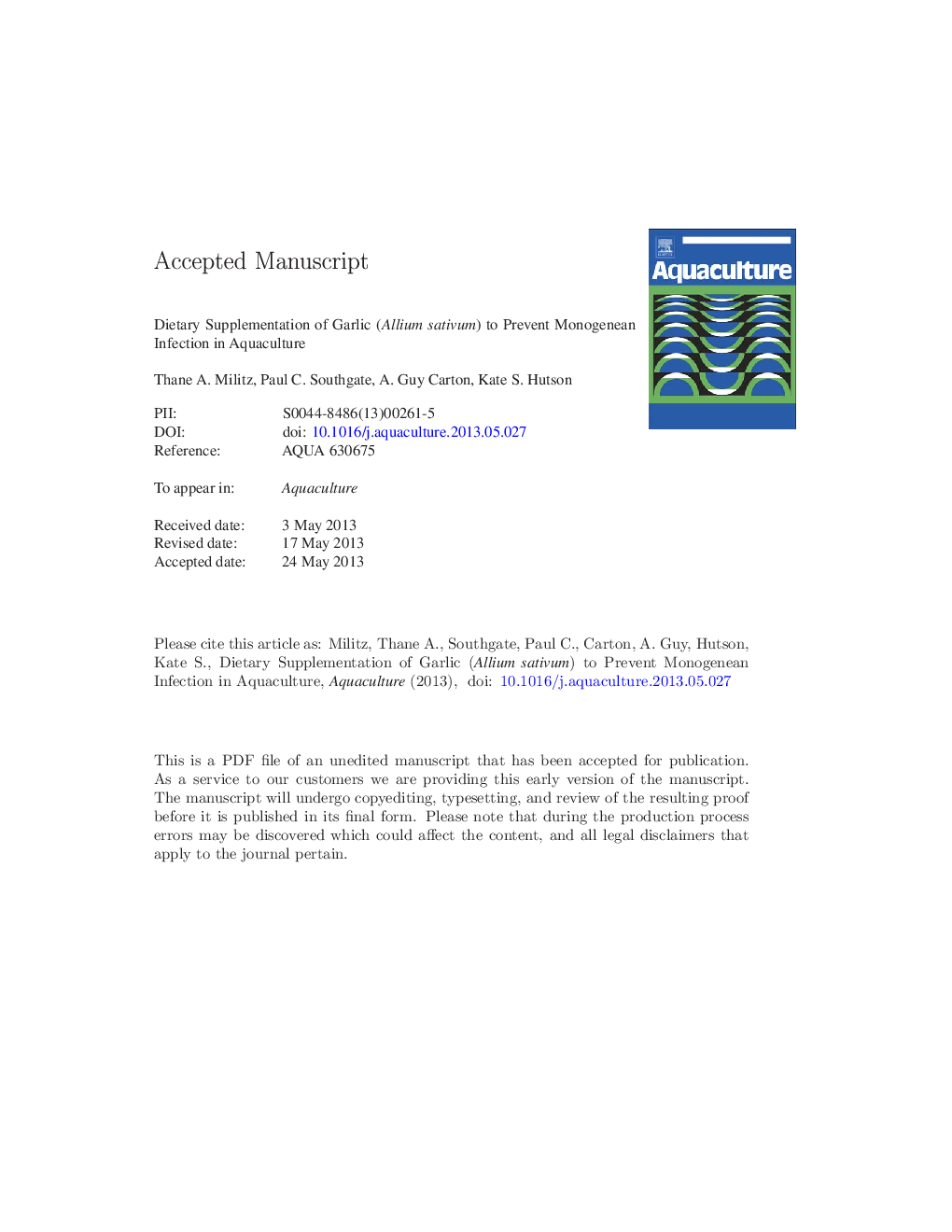| Article ID | Journal | Published Year | Pages | File Type |
|---|---|---|---|---|
| 8495543 | Aquaculture | 2013 | 19 Pages |
Abstract
Development of an effective preventative treatment for managing infections by Monogenea (Platyhelminthes) in aquaculture remains elusive. Present treatment methods offer only temporary respite and are either labor intensive, harmful to fish welfare or environmentally destructive. This study used garlic (Allium sativum) supplemented feed to assess its potential, in relation to its allicin content (an active component of garlic), to prevent infection by Neobenedenia sp. (Monogenea: Capsalidae) on farmed barramundi, Lates calcarifer. Two garlic supplemented diets of different concentrations and a non-supplemented control diet were fed to L. calcarifer for 10 and 30Â days prior to challenging fish with Neobenedenia sp. Long-term (30Â days) supplementation with garlic significantly reduced infection success by up to 70% compared to controls and did not negatively affect palatability of the feed. Infection success was not influenced by short-term (10Â days) supplementation suggesting that a delayed host response must occur to improve resistance to infection. Incorporation of garlic into a pressure-extruded pellet was found to be an effective method of delivery as only minimal leaching of allicin from the diet occurred (<Â 3% of allicin detected) during the interval of water contact between delivery and consumption. This study demonstrates that garlic extract administered as a dietary supplement is one of the most practical methods to prevent Neobenedenia sp. infection in mariculture.
Related Topics
Life Sciences
Agricultural and Biological Sciences
Aquatic Science
Authors
Thane A. Militz, Paul C. Southgate, Alexander G. Carton, Kate S. Hutson,
